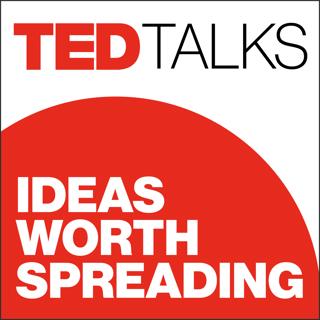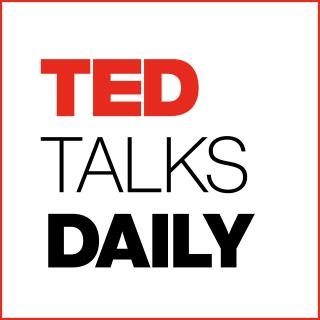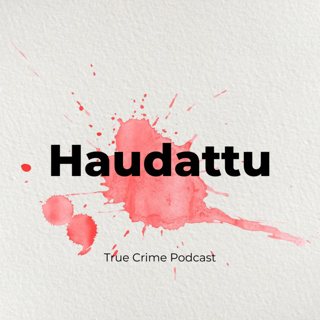
You smell with your body, not just your nose | Jennifer Pluznick
Do your kidneys have a sense of smell? Turns out, the same tiny scent detectors found in your nose are also found in some pretty unexpected places -- like your muscles, kidneys and even your lungs. In this quick talk (filled with weird facts), physiologist Jennifer Pluznick explains why they're there and what they do.For a chance to give your own TED Talk, fill out the Idea Search Application: ted.com/ideasearch.Interested in learning more about upcoming TED events? Follow these links:TEDNext: ted.com/futureyouTEDSports: ted.com/sportsTEDAI Vienna: ted.com/ai-viennaTEDAI San Francisco: ted.com/ai-sf Hosted on Acast. See acast.com/privacy for more information.
27 Heinä 20177min

The manipulative tricks tech companies use to capture your attention | Tristan Harris
A handful of people working at a handful of tech companies steer the thoughts of billions of people every day, says design thinker Tristan Harris. From Facebook notifications to Snapstreaks to YouTube autoplays, they're all competing for one thing: your attention. Harris shares how these companies prey on our psychology for their own profit and calls for a design renaissance in which our tech instead encourages us to live out the timeline we want.For a chance to give your own TED Talk, fill out the Idea Search Application: ted.com/ideasearch.Interested in learning more about upcoming TED events? Follow these links:TEDNext: ted.com/futureyouTEDSports: ted.com/sportsTEDAI Vienna: ted.com/ai-viennaTEDAI San Francisco: ted.com/ai-sf Hosted on Acast. See acast.com/privacy for more information.
26 Heinä 201717min

A simple new blood test that can catch cancer early | Jimmy Lin
Jimmy Lin is developing technologies to catch cancer months to years before current methods. He shares a breakthrough technique that looks for small signals of cancer's presence via a simple blood test, detecting the recurrence of some forms of the disease 100 days earlier than traditional methods. It could be a ray of hope in a fight where early detection makes all the difference.For a chance to give your own TED Talk, fill out the Idea Search Application: ted.com/ideasearch.Interested in learning more about upcoming TED events? Follow these links:TEDNext: ted.com/futureyouTEDSports: ted.com/sportsTEDAI Vienna: ted.com/ai-viennaTEDAI San Francisco: ted.com/ai-sf Hosted on Acast. See acast.com/privacy for more information.
25 Heinä 201712min

How cohousing can make us happier (and live longer) | Grace Kim
Loneliness doesn't always stem from being alone. For architect Grace Kim, loneliness is a function of how socially connected we feel to the people around us -- and it's often the result of the homes we live in. She shares an age-old antidote to isolation: cohousing, a way of living where people choose to share space with their neighbors, get to know them, and look after them. Rethink your home and how you live in it with this eye-opening talk.For a chance to give your own TED Talk, fill out the Idea Search Application: ted.com/ideasearch.Interested in learning more about upcoming TED events? Follow these links:TEDNext: ted.com/futureyouTEDSports: ted.com/sportsTEDAI Vienna: ted.com/ai-viennaTEDAI San Francisco: ted.com/ai-sf Hosted on Acast. See acast.com/privacy for more information.
24 Heinä 201710min

How I fail at being disabled | Susan Robinson
Born with a genetic visual impairment that has no correction or cure, Susan Robinson is legally blind (or partially sighted, as she prefers it) and entitled to a label she hates: "disabled." In this funny and personal talk, she digs at our hidden biases by explaining five ways she flips expectations of disability upside down.For a chance to give your own TED Talk, fill out the Idea Search Application: ted.com/ideasearch.Interested in learning more about upcoming TED events? Follow these links:TEDNext: ted.com/futureyouTEDSports: ted.com/sportsTEDAI Vienna: ted.com/ai-viennaTEDAI San Francisco: ted.com/ai-sf Hosted on Acast. See acast.com/privacy for more information.
21 Heinä 20177min

The human insights missing from big data | Tricia Wang
Why do so many companies make bad decisions, even with access to unprecedented amounts of data? With stories from Nokia to Netflix to the oracles of ancient Greece, Tricia Wang demystifies big data and identifies its pitfalls, suggesting that we focus instead on "thick data" -- precious, unquantifiable insights from actual people -- to make the right business decisions and thrive in the unknown.For a chance to give your own TED Talk, fill out the Idea Search Application: ted.com/ideasearch.Interested in learning more about upcoming TED events? Follow these links:TEDNext: ted.com/futureyouTEDSports: ted.com/sportsTEDAI Vienna: ted.com/ai-viennaTEDAI San Francisco: ted.com/ai-sf Hosted on Acast. See acast.com/privacy for more information.
19 Heinä 201716min

How your brain hallucinates your conscious reality | Anil Seth
Right now, billions of neurons in your brain are working together to generate a conscious experience -- and not just any conscious experience, your experience of the world around you and of yourself within it. How does this happen? According to neuroscientist Anil Seth, we're all hallucinating all the time; when we agree about our hallucinations, we call it "reality." Join Seth for a delightfully disorienting talk that may leave you questioning the very nature of your existence.For a chance to give your own TED Talk, fill out the Idea Search Application: ted.com/ideasearch.Interested in learning more about upcoming TED events? Follow these links:TEDNext: ted.com/futureyouTEDSports: ted.com/sportsTEDAI Vienna: ted.com/ai-viennaTEDAI San Francisco: ted.com/ai-sf Hosted on Acast. See acast.com/privacy for more information.
18 Heinä 201716min

Can clouds buy us more time to solve climate change? | Kate Marvel
Climate change is real, case closed. But there's still a lot we don't understand about it, and the more we know the better chance we have to slow it down. One still-unknown factor: How might clouds play a part? There's a small hope that they could buy us some time to fix things ... or they could make global warming worse. Climate scientist Kate Marvel takes us through the science of clouds and what it might take for the earth to break its own fever.For a chance to give your own TED Talk, fill out the Idea Search Application: ted.com/ideasearch.Interested in learning more about upcoming TED events? Follow these links:TEDNext: ted.com/futureyouTEDSports: ted.com/sportsTEDAI Vienna: ted.com/ai-viennaTEDAI San Francisco: ted.com/ai-sf Hosted on Acast. See acast.com/privacy for more information.
17 Heinä 201713min






















